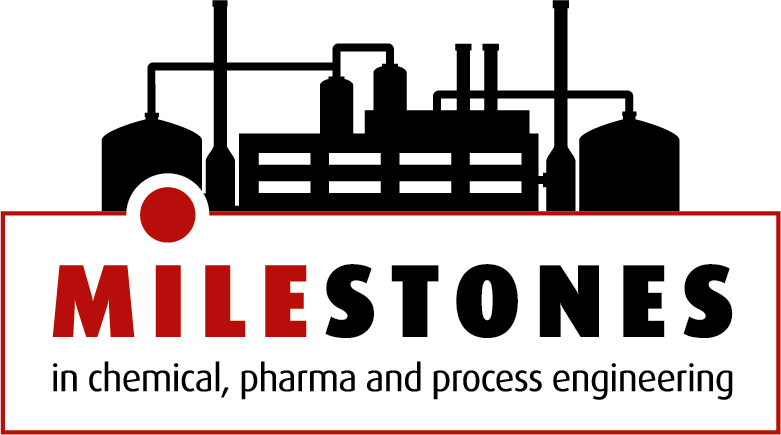:quality(80)/images.vogel.de/vogelonline/bdb/1842300/1842388/original.jpg)
Achema Pulse: Flow Chemistry What Impact Does Covid Have on Global Flow Chemistry and How Should Companies React?
The global pandemic has forced chemical industries to adjust to a previously unthinkable situation. While global supply chains were disrupted, the new situation also created opportunities for flow chemistry organisations.
Related Companies

Frankfurt/Germany — The pandemic has unleashed a world of uncertainty, where we are questioning the risks in all that we do. What would have been considered unthinkable in 2019, has been experienced in 2020. How do organisations react to these circumstances? As with all situations where there are threats then there are also opportunities. In the new scenario, risks have to be reassessed and balanced, Martin Elliott, CCO of Centillion Technology pointed out in his presentation on day one of Achema Pulse.
The chemical industry is at the heart of many of the global value chains that have been found wanting during this period and will have a key role to play in establishing economic stability within the new order.
Whilst the indications were becoming apparent during the autumn of 2019 that we were heading for a major recession, the arrival of the pandemic exposed major weaknesses within supply chains. This was added by increasing concern over carbon footprint and sustainability as well as shortages of computer chips.
Flow chemistry will be integral to successful companies adapting to this new normal and responding to the needs and expectations of the wider society.
By winter and spring 2020 volatility, uncertainty, complexity and ambiguity became the new normal. However, Elliott pointed out that this situation also create an opportunity to re-evaluate how we do business and find different ways. Do organisations want to take old inefficient plants out of mothballs or is this the opportunity to reassess and install state of the art facilities that can address wider issues such as carbon footprints, sustainability and resource efficiency? One opportunity for flow chemistry identified by the speaker was the chance to reduce the impact of transport and logistics both at the front and back ends of the chain. Were should plants be located to minimise disruptions? A similar answer to this question can be given with regard to carbon reductions, Elliott stated. The answers in his opinion are:
- Not so much globalisation and Just in Time
- More of Localisation and Just in Case
- De-risking and speed to market
For many years the mantra has been Globalisation and Just in Time. According to Elliott, the resulting shortages in crucial components for major industries, as well as limited availability of critical medicines, has demonstrated that we now need to be now thinking in terms of Localisation and Just in Case. “We are now living in a VUCA world (volatile, uncertain, complex and ambiguous) a world where we need to be adept, resilient and agile, whilst managing risk in the most effective way”, Martin Elliott says.
(ID:47468230)




:quality(80)/images.vogel.de/vogelonline/bdb/1840600/1840610/original.jpg)
:quality(80)/images.vogel.de/vogelonline/bdb/1840500/1840546/original.jpg)
:quality(80)/images.vogel.de/vogelonline/bdb/1838700/1838796/original.jpg)
:quality(80)/images.vogel.de/vogelonline/bdb/1842200/1842207/original.jpg)
:quality(80)/images.vogel.de/vogelonline/bdb/1842000/1842025/original.jpg)
:quality(80)/images.vogel.de/vogelonline/bdb/1841600/1841623/original.jpg)
:quality(80)/images.vogel.de/vogelonline/bdb/1841400/1841453/original.jpg)
:quality(80)/images.vogel.de/vogelonline/bdb/1838300/1838395/original.jpg)
:quality(80)/images.vogel.de/vogelonline/bdb/1836400/1836498/original.jpg)
:quality(80)/images.vogel.de/vogelonline/bdb/1827600/1827658/original.jpg)
:quality(80)/images.vogel.de/vogelonline/bdb/1830800/1830869/original.jpg)
:quality(80)/images.vogel.de/vogelonline/bdb/1842000/1842066/original.jpg)
:quality(80)/images.vogel.de/vogelonline/bdb/1841600/1841689/original.jpg)
:quality(80)/images.vogel.de/vogelonline/bdb/1841400/1841428/original.jpg)
:quality(80)/images.vogel.de/vogelonline/bdb/1838300/1838310/original.jpg)
:quality(80)/images.vogel.de/vogelonline/bdb/1839600/1839675/original.jpg)
:quality(80)/images.vogel.de/vogelonline/bdb/1838400/1838431/original.jpg)
:quality(80)/images.vogel.de/vogelonline/bdb/1838500/1838559/original.jpg)
:quality(80)/images.vogel.de/vogelonline/bdb/1837700/1837708/original.jpg)
:quality(80)/images.vogel.de/vogelonline/bdb/1842600/1842689/original.jpg)
:quality(80)/images.vogel.de/vogelonline/bdb/1842600/1842607/original.jpg)
:quality(80)/images.vogel.de/vogelonline/bdb/1842300/1842356/original.jpg)
:quality(80)/images.vogel.de/vogelonline/bdb/1807900/1807985/original.jpg)
:quality(80)/images.vogel.de/vogelonline/bdb/1797900/1797927/original.jpg)
:quality(80)/images.vogel.de/vogelonline/bdb/1797600/1797603/original.jpg)
:fill(fff,0)/images.vogel.de/vogelonline/companyimg/21800/21832/65.jpg)
:fill(fff,0)/p7i.vogel.de/companies/5f/98/5f98fbb2e7bf2/05-trm-filter-logo-with-slogan-en-alt.png)
:fill(fff,0)/images.vogel.de/vogelonline/companyimg/123400/123470/65.png)
:quality(80)/images.vogel.de/vogelonline/bdb/1838400/1838431/original.jpg)
:quality(80)/images.vogel.de/vogelonline/bdb/1842200/1842207/original.jpg)